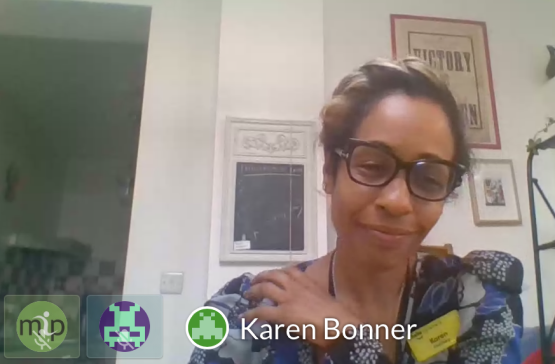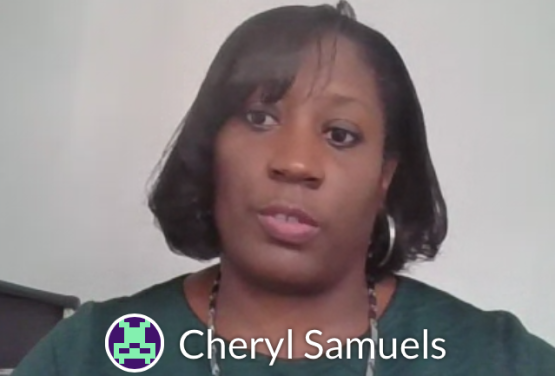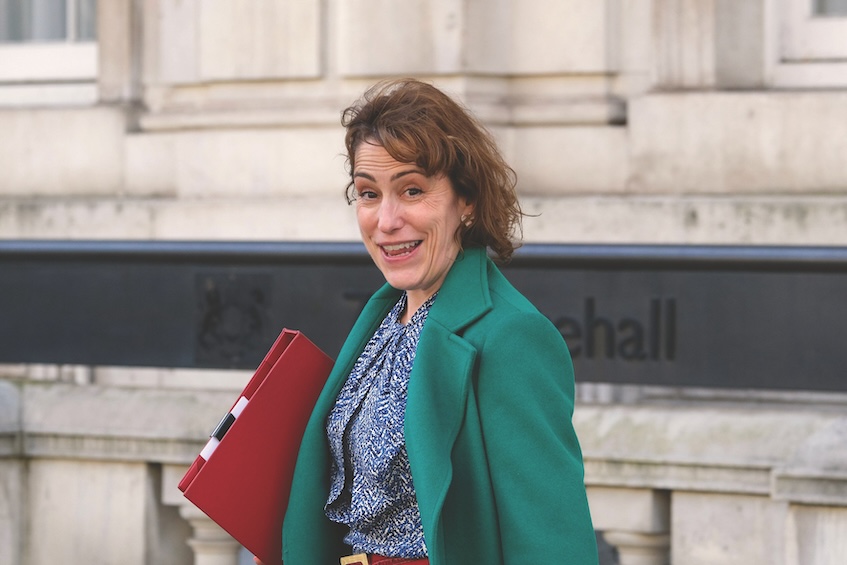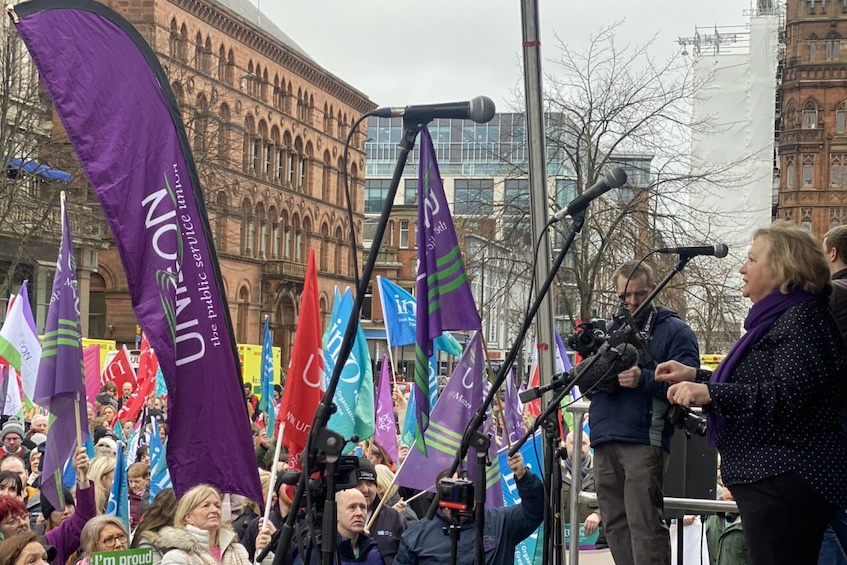MiP Summit: Racism doesn’t stop when you’re a manager

Racism doesn’t disappear when you get to senior levels – it stays close and causes distress to everybody, every day,” MiP National Committee member Yvonne Richards told delegates at MiP’s virtual Members’ Summit on 3 November.
This year’s Summit takes the form of 90-minute virtual meetings spread over the week. Tuesday’s session featured a panel discussion on how employers and unions can work together to tackle racism in the NHS.
Chairing the debate, Richards summarised the feedback from MiP’s recently-formed focus group of BAME members and explained that the union’s casework showed that “black members are disproportionally represented in negative procedures like capability, disciplinary and discrimination.”
Accepting racism exists
Cheryl Samuels, deputy director of workforce transformation at NHS England/Improvement warned it was “naive” for managers to think racism wasn’t a problem in the NHS. “The people we employ are are a section of society and some of those ugly behaviours we see in society are mirrored in our organisations,” she said.
She explained that unfair recruitment practices and informal arrangements – such as “people being tapped on the shoulder, nepotism and people belonging to clubs” – served to “marginalise minority groups even further.” Employers and unions needed to eliminate bias from arrangements for secondments and ‘acting up’ assignments, as well as access to “sexy training”, she said.
Helga Pile, UNISON’s deputy head of health, said it was “distressing” to hear that some union members feared “they would be treated as the problem” if they raised an issue about racism. “As trade unions, we’ve got to say these things are not acceptable and find ways to turn it round,” she added.
Listen and act
Karen Bonner, chief nurse at Buckinghamshire Healthcare NHS Trust, said: “We have to listen and act. There’s enough evidence out there to guide us.” She urged managers to “really listen to staff and not invalidate what they’re telling you – even if it’s uncomfortable. As a manager you have to ask, ‘What do I have to change to improve the experience that staff are having?’”
Samuels added: “Leaders have an absolute responsibility to sit up and listen, but also be conscious that discomfort is often where the greatest growth and learning happens.”
It was also important for NHS organisations “to recruit against our values as well as technical capabilities”, she said, pointing out that the vast majority of dismissals and disciplinary cases centred on conduct rather than capability.
Responsibility for tackling racism and discrimination “is too often put back on the people who are actually experiencing it”, Bonner said. “If you are managing people from different backgrounds, you have to recognise and understand that they come with difference. It won’t always be easy for managers who are not people of colour, and you won’t always get it right, but it’s part of your responsibility.”
“Black people are exhausted,” added Yvonne Richards. “We’re tired and we’re now expected to teach people about something that we’ve been screaming about for at least the 26 years that I’ve been in the NHS.”
Helga Pile said it was important for leaders and union reps to show “curiosity” about other people’s experiences. “We’re looking for people to be less fearful of getting it wrong and more interested in asking questions because they want to understand,” she explained.

Cheryl Samuels added: “Nobody needs to ask the question ‘why?’ anymore because there’s Google. People need to do their race homework.” She said NHS England was developing an “allyship programme” for white staff who wanted to support BAME colleagues. “We’ve got more white people than ever who really want to step up to the plate and do something about it. They recognise the injustice, they feel like they want to do something, but they need a bit of a framework,” she explained.
Racism is more sophisticated
Responding to questions about unconscious bias training, Bonner said research showed that such programmes don’t work on their own. Samuels agreed, saying that, while many organisations “had good intentions”, others had “subjected managers to these programmes just to be seen to be doing the right things”.
She said that union reps needed to recognise the seemingly-small “micro-aggressions” that often make up a pattern of discrimination. “People don’t really come out and say the things they used to say to my grandmother, who was a psychiatric nurse at Guy’s. It’s a lot more subtle and sophisticated now,” she explained. “When people come to them with issues, union reps need to be a voice for them… and the employer should be looking at that as an opportunity to change.”
Bringing the discussion to a close, Yvonne Richards described racism as “a challenge” to the NHS Constitution, which promises equal and fair treatment for everyone. “If we can’t get this right for the people we’re working with, how can we get it right for the people and communities we’re serving? We have to challenge ourselves honestly to do better,” she said.
|
MiP has welcomed moves to speed up pay progression for Band 8 and 9 managers and tackle long-standing problems with the Agenda for Change pay system that deter staff from seeking promotion.
23 September 2024
| By MiP
News
|
|||||
|
MiP has welcomed a 5% pay rise for very senior and executive senior managers in the NHS in England, after the UK government accepted the latest recommendations from the Senior Salaries Review Body (SSRB).
09 September 2024
| By MiP
News
|
|||||
|
MiP has welcomed the 5.5% pay rise for NHS staff on Agenda for Change as “a notable shift” and a “good starting point” for future negotiations.
04 September 2024
| By MiP
News
|
|||||
|
The health secretary’s plans to cut 5,500 management jobs to fund community services if the Conservatives win the general election have been criticised as “not credible” by Labour and “paper thin” by MiP.
25 June 2024
| By MiP
News
|
|||||
|
After months of industrial action, NHS workers in Northern Ireland have accepted a 5% pay offer for last year negotiated by health unions and the Department of Health.
05 April 2024
| By MiP
News
|
|||||
|
NHS leaders must show how they are driving service improvement, delivering transformation, promoting equality and developing a just culture as part of new “competency framework” for directors introduced by NHS England this month.
04 April 2024
| By MiP
News
|
|||||
|
Three-quarters of MiP members say NHS England’s new hybrid working policy is more likely to damage productivity than improve it, according to a recent survey. Half say there isn’t enough office space for staff to return to the office.
03 April 2024
| By MiP
News
|
|||||
|
The latest NHS Staff Survey showed a modest improvement in staff morale, but found NHS workers were facing record levels of discrimination, and a significant proportion still plan to leave their jobs in the near future.
20 March 2024
| By MiP
News
|
|||||
|
Related News
-

MiP responds to the abolition of NHS England
Government risk repeating same mistakes as Lansley by abolishing NHS England and cutting more staff from ICBs, says MiP.
-

NHS England and central staff could be cut by 50%, NHSE has announced
Government planned cuts at NHS England go much further than previously announced, with up to 50% of staff at risk.
-

New MiP survey shows growing support for principle of regulating managers, but warns it won’t improve patient safety
MiP’s member survey on regulating NHS managers shows managers are still not convinced regulation will improve patient safety or raise standards, despite growing support for it in principle.







